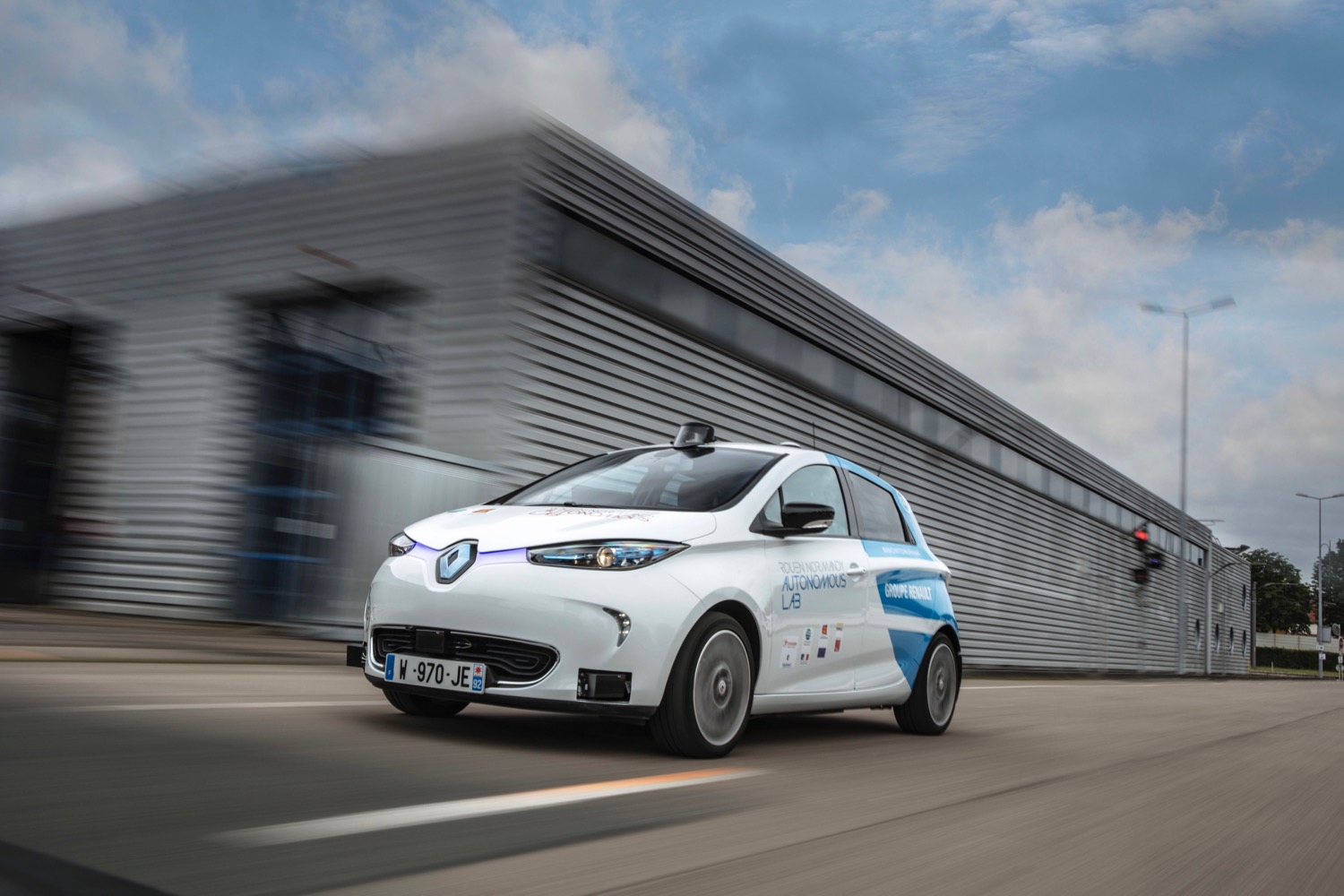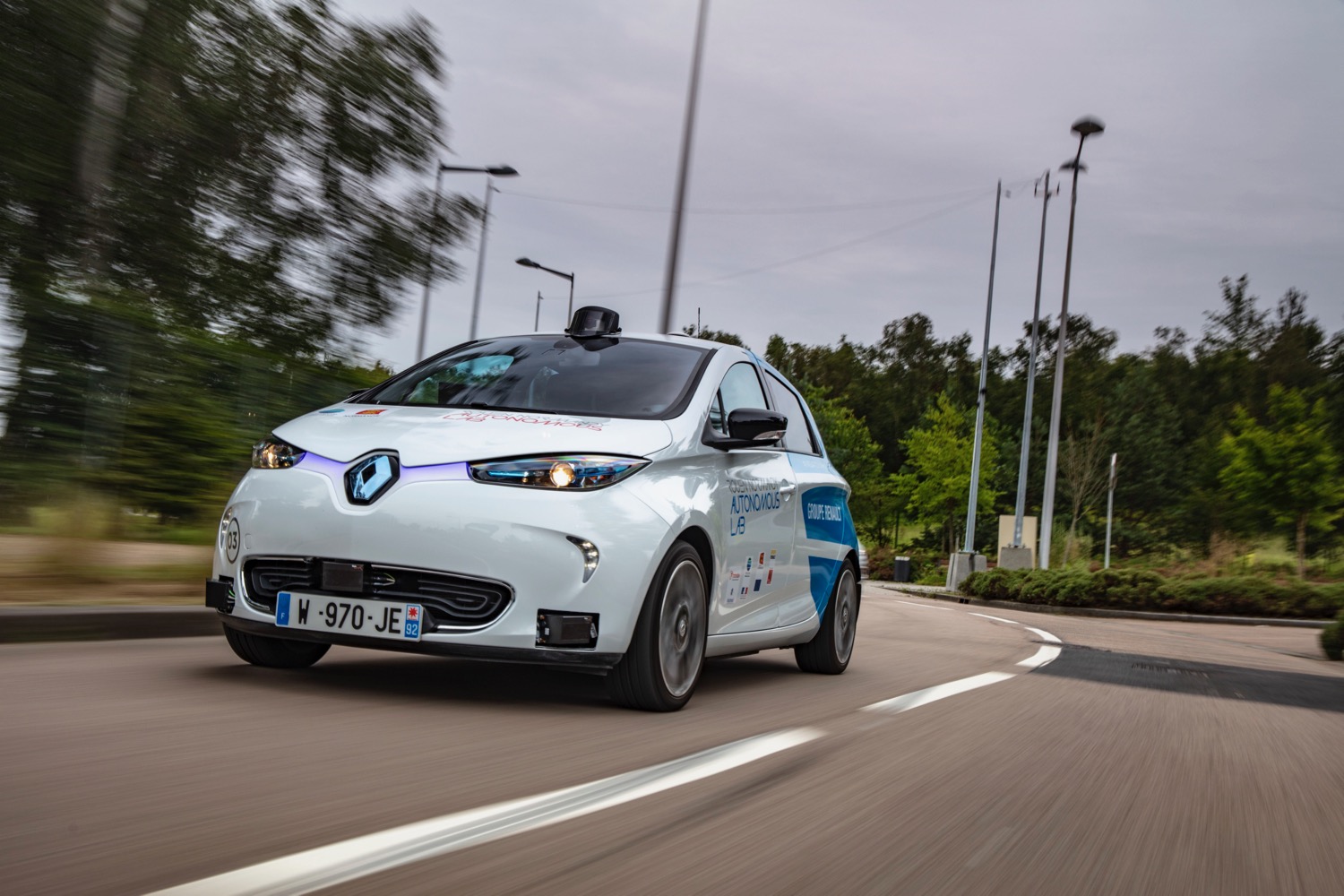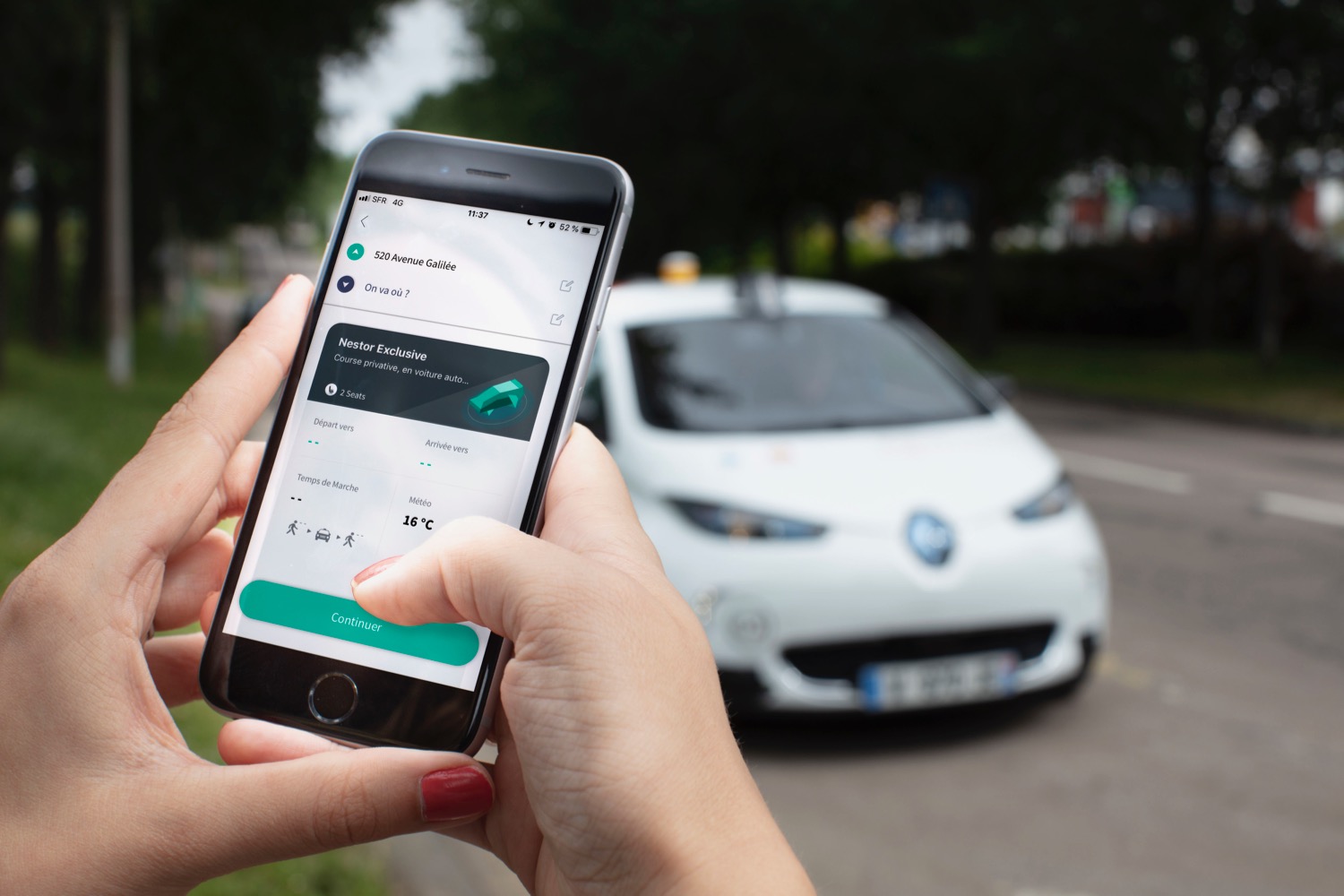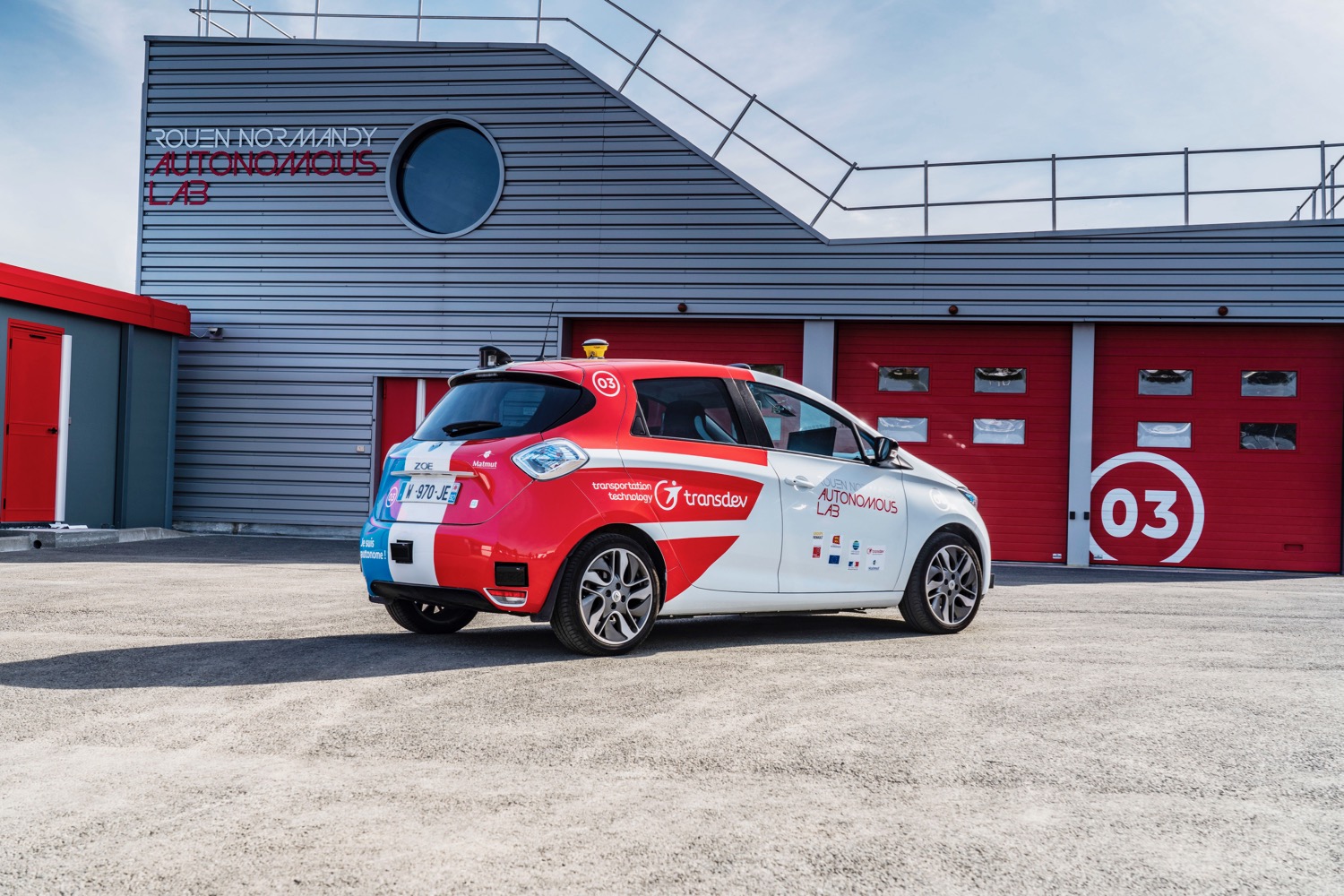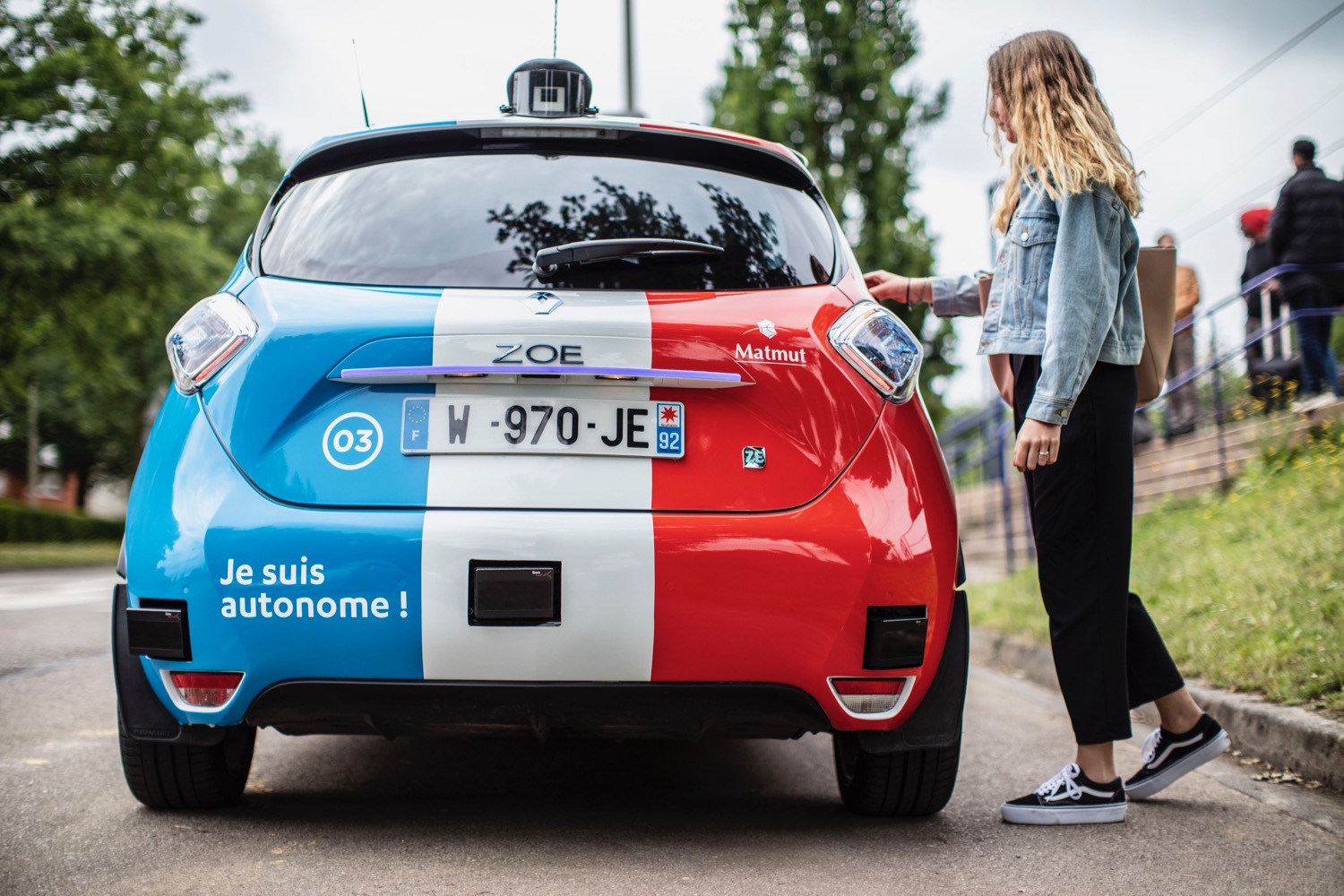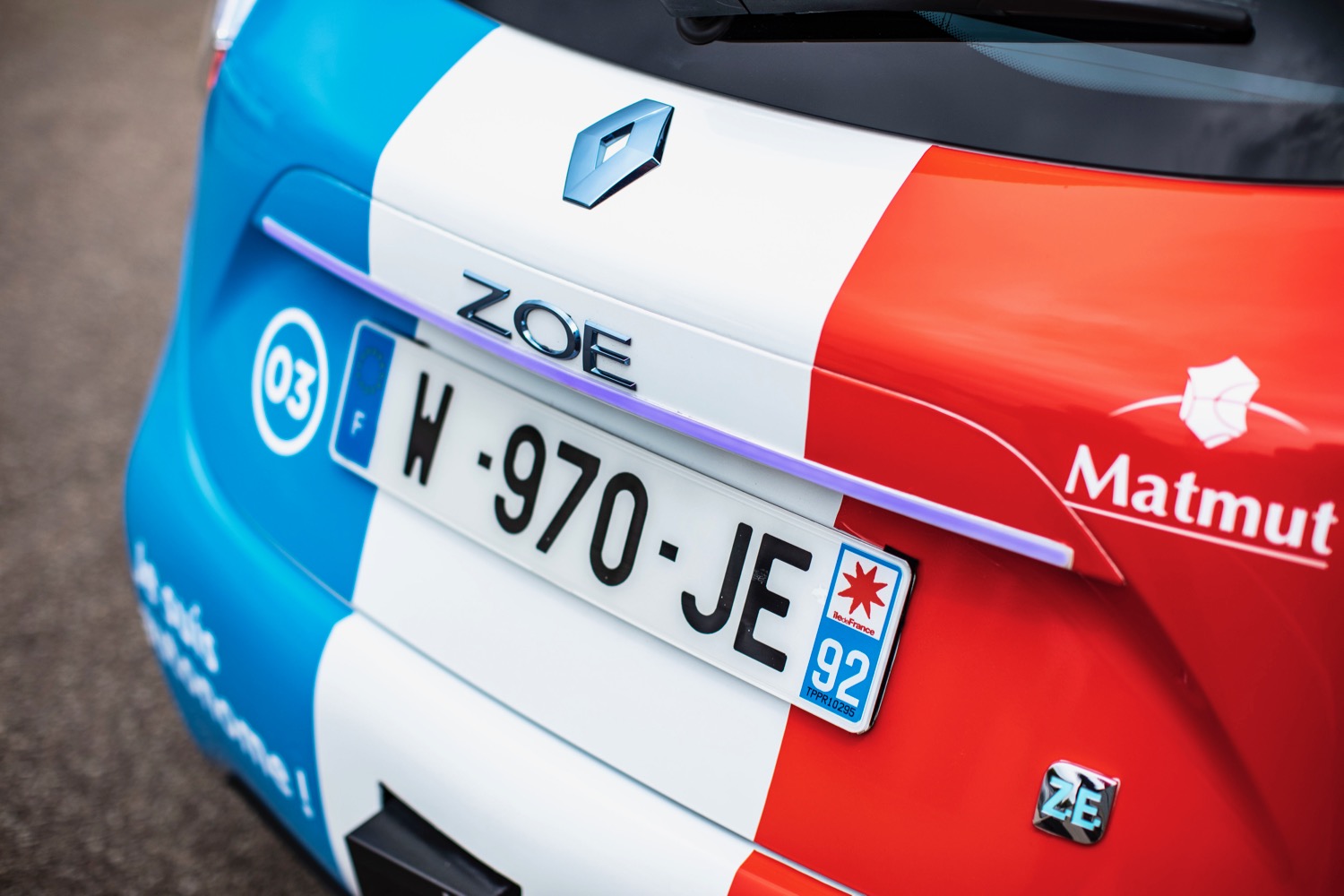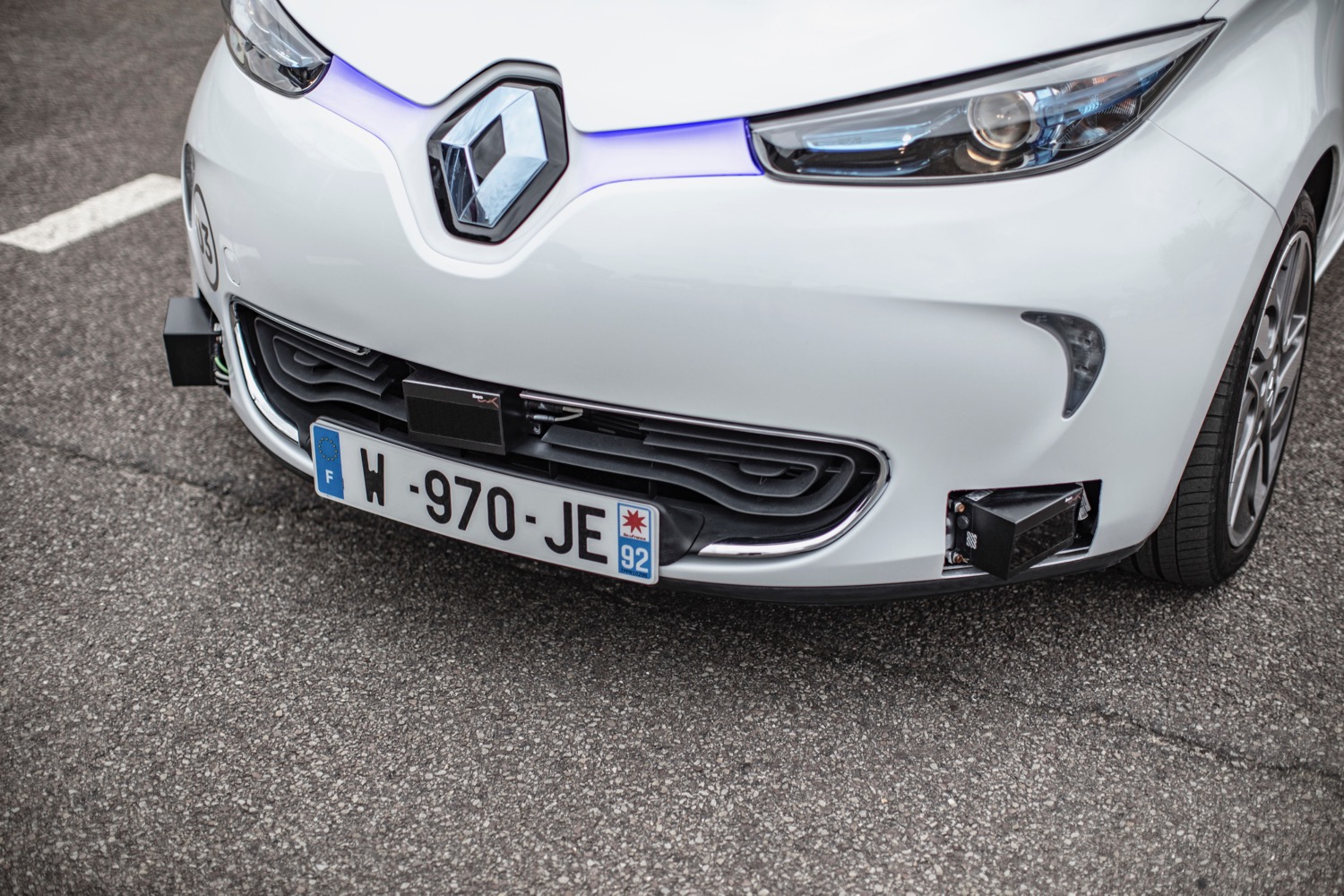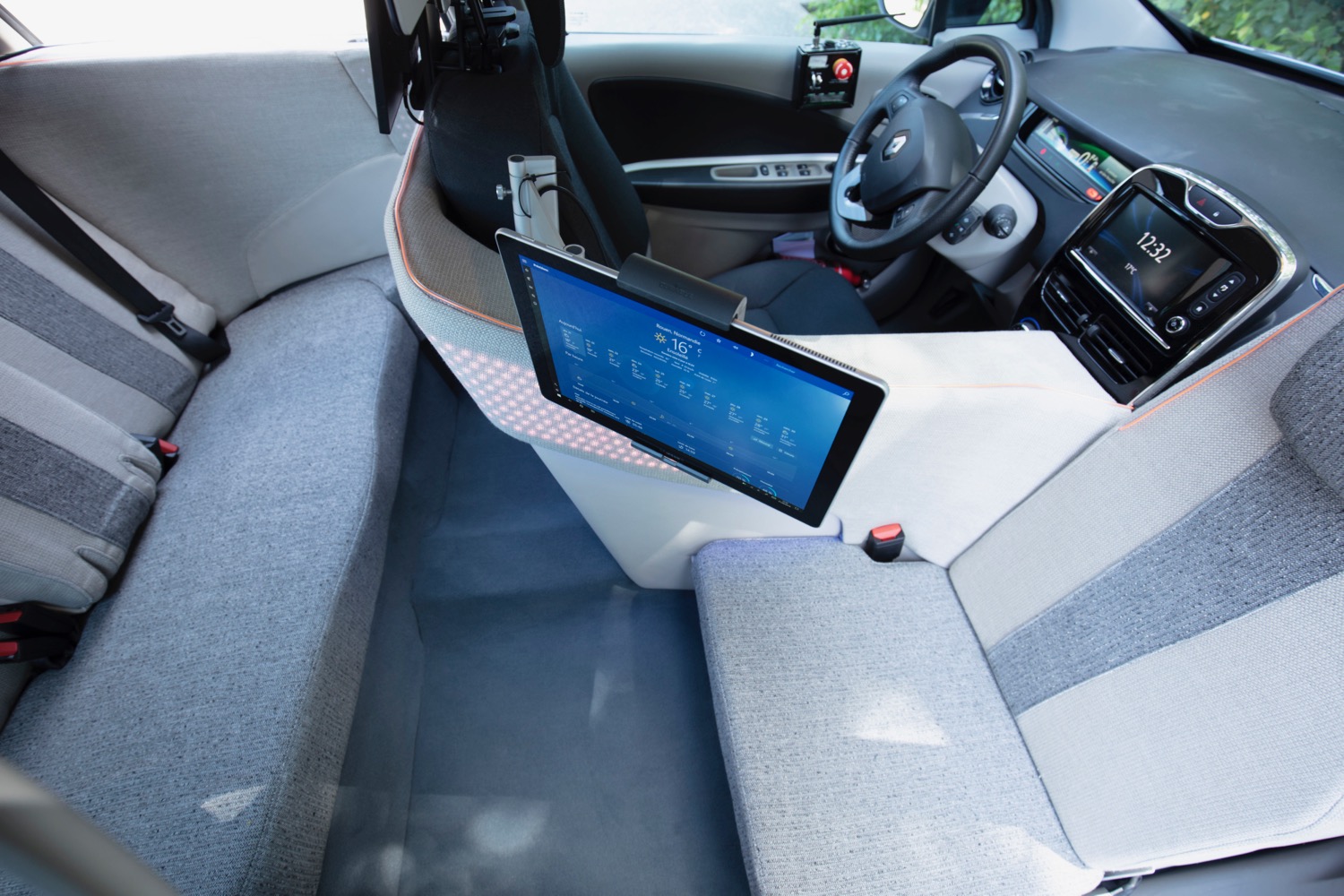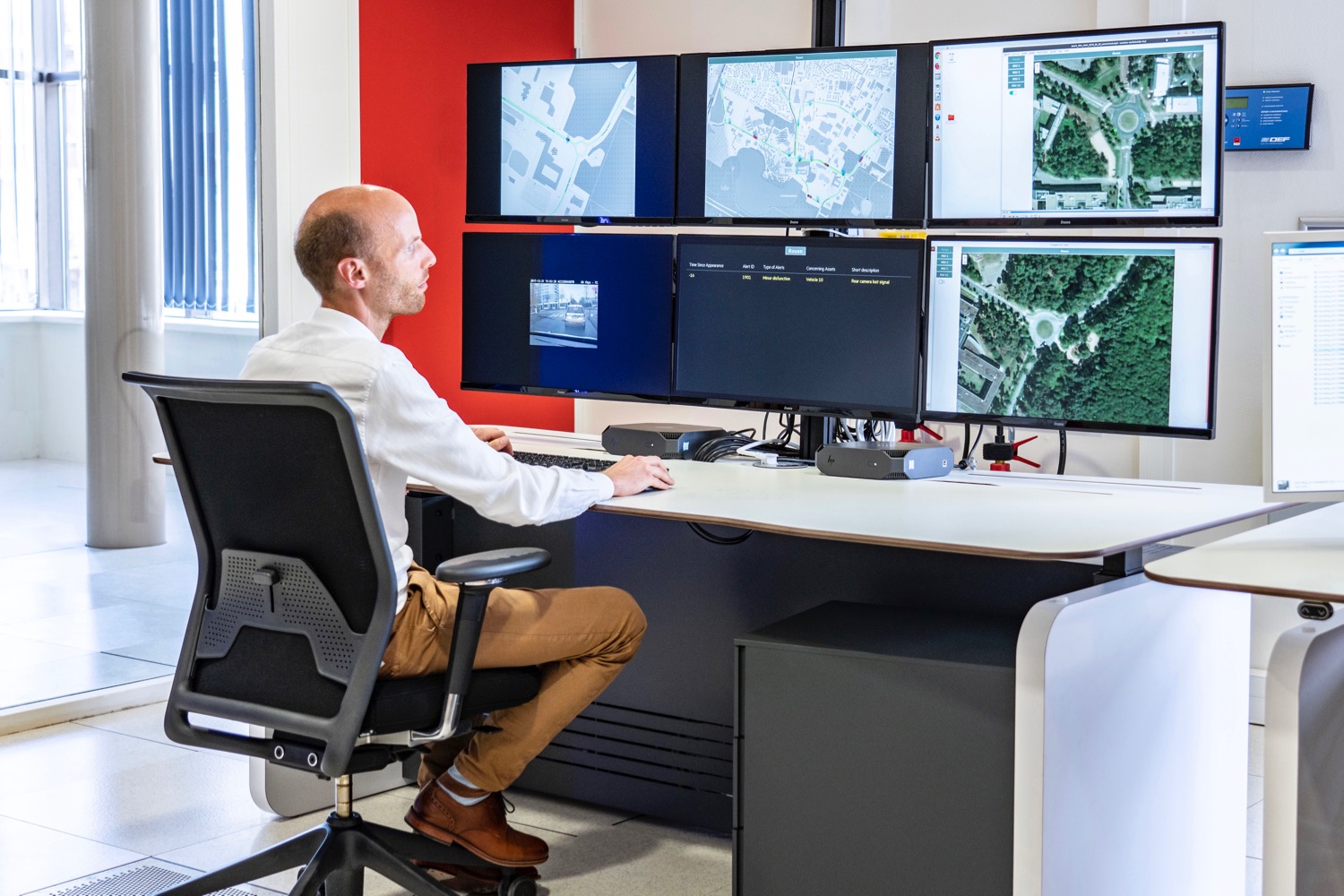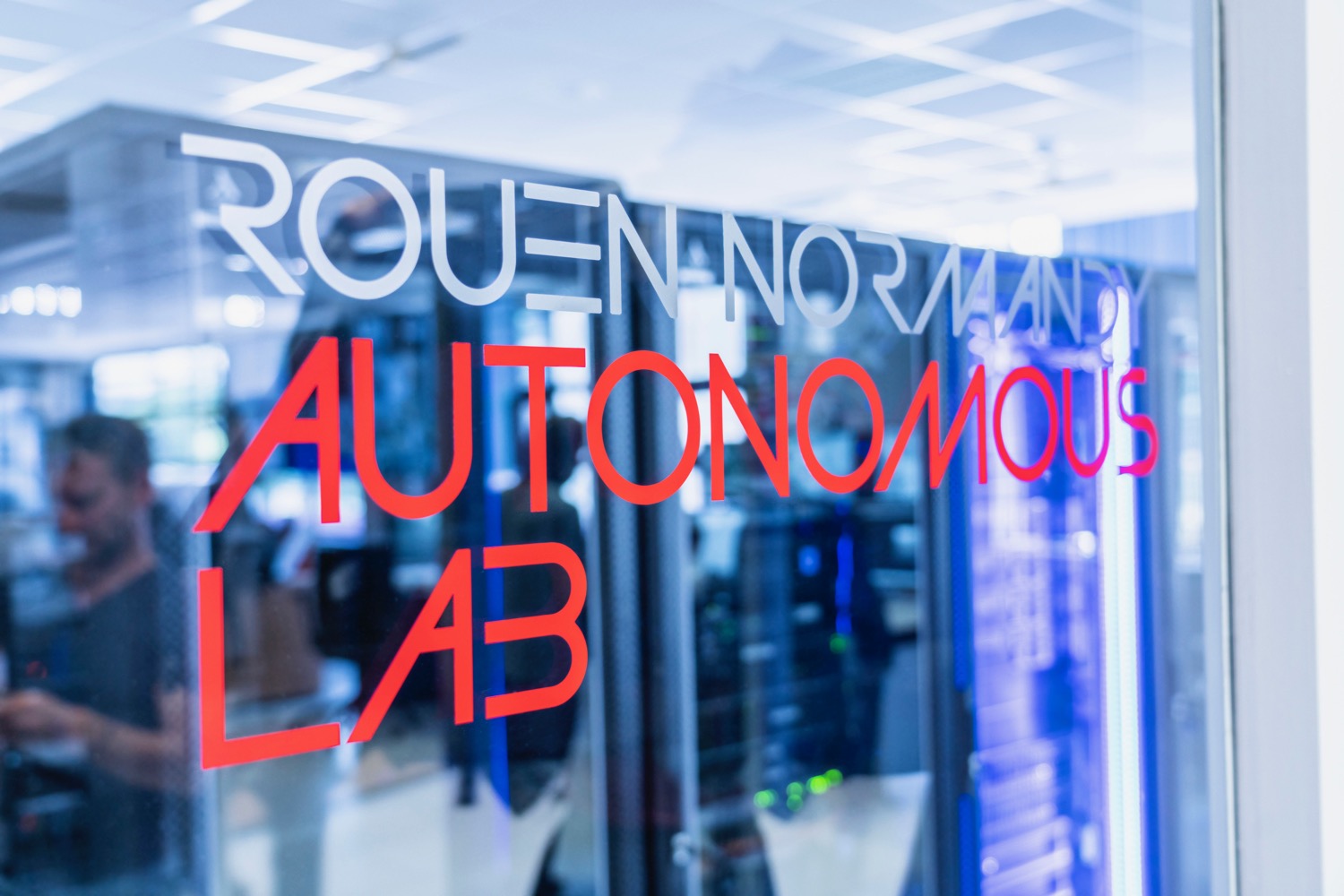French automaker Renault is preparing to launch a pilot public transportation program with self-driving cars in its home country. Cars will operate in the city of Rouen, in France’s Normandy region. Renault, which is very bullish on autonomous cars, is completing final testing and hopes to have the pilot service up and running by September. The program will through December 2019.
At launch, the pilot will include four Renault Zoe electric cars modified with autonomous-driving systems developed with help from partner company Transdev, and one i-Cristal autonomous shuttle vehicle, developed by Transdev and Lohr. The vehicles will operate on three routes covering a distance of 10 kilometers (6.2 miles), in Rouen’s Technopôle du Madrillet business park, with 17 stops including one at a tram station.
Users will be able to hail one of the cars via an app, and the fleet will be monitored by a central dispatcher. If a problem occurs, the dispatcher will have the ability to “reduce the speed of vehicles or bring them to a halt,” according to a Renault press release. Renault also said that “audio and video communications between passengers and the control room will be possible at any time.” A human safety driver will be seated at the controls of each vehicle, with an engineer in the front or rear passenger seat to monitor operations.
Renault hopes to prove that autonomous cars and mobility services can complement an existing public transit system. Users will be able to connect to Rouen’s public transit system through a stop at the Technopôle tram station. But Renault expects its self-driving cars to fill in the gaps where public transit isn’t available. This so-called “last mile” use, getting passengers from a transit hub to their final destination, is often discussed as an important niche for mobility services. But the added convenience of these services means passengers may be tempted to use them in lieu of public transit for a full journey, where available.
Renault joins a long list of companies planning to use autonomous vehicles in mobility services. Earlier this week, May Mobility launched a pilot autonomous shuttle service in Detroit. Waymo plans to launch an autonomous ride-sharing service in Phoenix, Arizona, later this year, and a recent order for 62,000 Chrysler Pacifica minivans indicates it may soon expand elsewhere.
Update: Added confirmation that cars will operate with a human safety driver and engineer onboard
Editors' Recommendations
- Cruise’s robotaxi service suspended by California regulator
- Cruise autonomous vehicle drives over woman just after she was hit by another car
- Waymo taps the brakes on its autonomous-trucking project
- Autonomous cars confused by San Francisco’s fog
- Ford and VW close down Argo AI autonomous car unit
